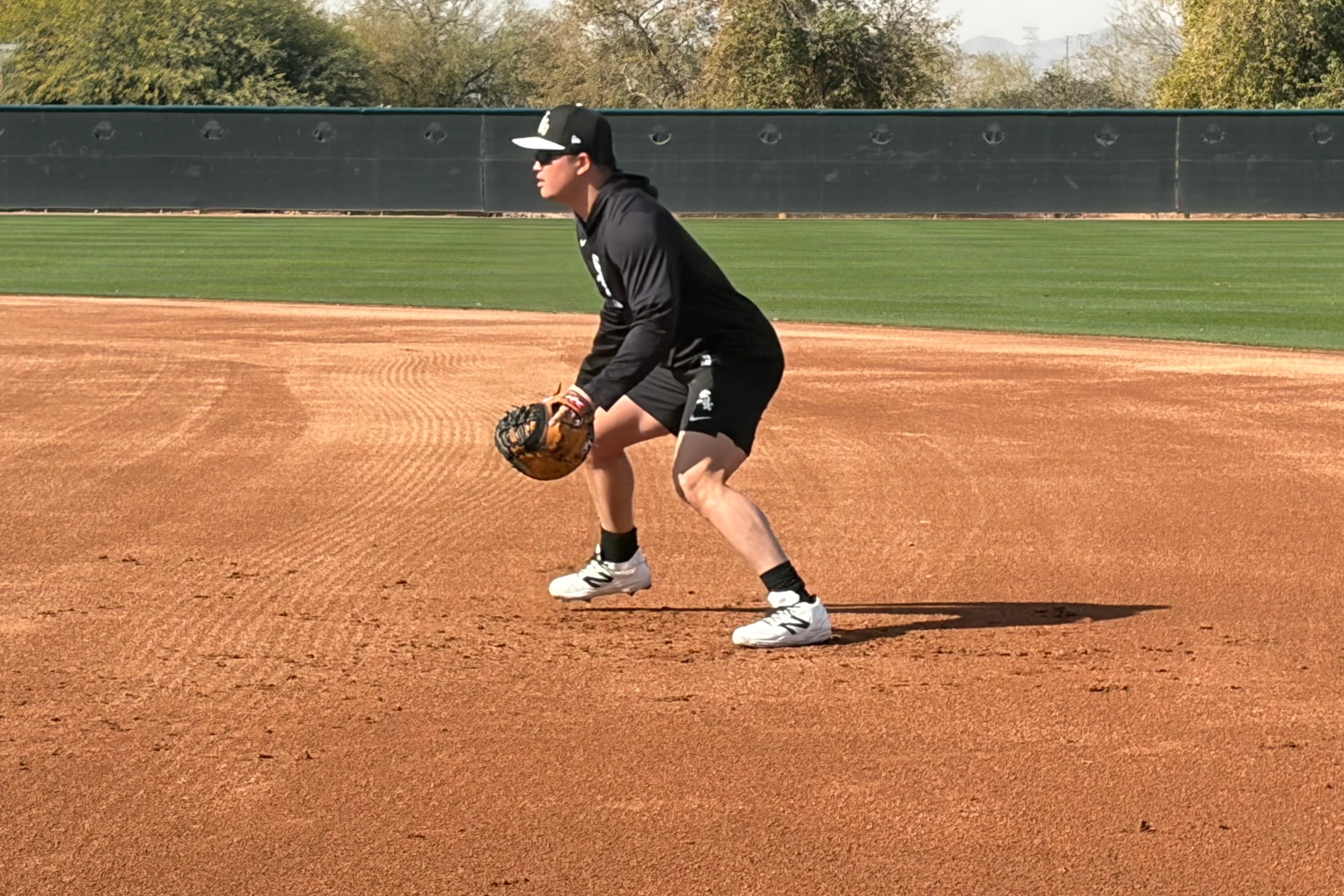Pedro Grifol said something truer than he intended when he delivered his monthly sermon on the importance of culture and foundation without evidence of either on Monday afternoon.
It's not in the MLB.com video that clipped highlights of his conference, but it's in the MLB.com story, which I've cross-checked against the Sun-Times story and a Chicago Tribune column to make sure a word wasn't misheard or incorrectly transcribed. They all relay the same Freudian slip.
“We're moving forward,” Grifol added. “We're moving forward with a new-laid foundation on rock -- not on muck, on rock -- that is going to sustain any little problem that we may have."
Grifol probably meant to say that the foundation would withstand any problem, because the White Sox don't need Grifol's help sustaining problems. They're already experts in that field.
Rick Hahn found himself in yet another hotly anticipated media session, and he rolled up his sleeves to get in the dirt with Keynan Middleton. Since Middleton already breached decorum by not keeping stuff in the clubhouse with his explosive comments to ESPN, Hahn alluded to conduct issues on Middleton's part, and also tried to paint him as disingenuous:
“[Middleton] sought me out to apologize for his unprofessional behavior, unprofessional behavior that Pedro had called him out on and had an individual meeting with him about,” Hahn said. “Keynan wanted to apologize for it.
“I told him at the time I figured that was a one-off and not something that anyone needed to get into greater detail of … So for a number of reasons -- the sanctity of the clubhouse, his own personal experience here, as well as what he expressed to me as his future desires -- I was surprised to see the report this morning.”
Hahn did respond specifically to Middleton's charge of a rookie sleeping in the bullpen...
In a long-winded answer, Hahn said he gave a position player with sleeping problems permission to sleep in the clubhouse. Some veterans complained, but Hahn said they were appeased by his explanation and the thoughts of health experts.
“Perhaps that’s something that got lost in translation in Keynan’s (claims),” Hahn said. “But at no point have we had a player sleeping in the bullpen.”
... and while Paul Sullivan described it as "long-winded" there, it's important for Hahn to correct the record here, because Middleton's description really only fit Gregory Santos, and Santos wouldn't deserve to have his name besmirched for an offense he didn't commit.
That just assumes Hahn is correct himself, and that's difficult to know. Jesse Rogers said he corroborated Middleton's account in his story Sunday night, and Lance Lynn told A.J. Pierzynski on his Foul Territory YouTube show, "I can tell you what Key was wrong about ..." and then said nothing.
Setting aside the player-specific offenses of sleeping during the game and missing infield practice, it does seem like Middleton hit on something by saying the White Sox had "no rules."
In theory, Grifol says he had rules. In practice, he ceded that they might have been too open-ended to resemble a real code, because he emphasized protecting something that may not yet exist.
One was a classic — what happens in the clubhouse stays in the clubhouse — that clearly wasn’t heeded by all. Another was about being on time, which is as straightforward as it gets. But beyond that?
“I said as far as rules, anything that happens where you feel like you’re fracturing our culture, that’s a rule — don’t fracture our culture,” he said. “So I kind of left it open. Was it a mistake or not? I’m not sure.”
And maybe this approach would've worked if the White Sox were able to establish amongst themselves a stable clubhouse hierarchy, but Hahn described a social order that more or less collapsed.
“You learn a lot about people’s character during times of adversity,” Hahn said. “Unfortunately, we got off to a wretched start and the way the room responded was not the way we had hoped.”
Is that the players’ fault or the manager’s? Or — wait — does the blame lie with Hahn and Kenny Williams, who put the roster together?
“I perhaps overestimated the strength in that room to deal with adversity,” Hahn said.
Alas, this is one of the White Sox's sustained problems: They're terrible at estimating. Hahn overestimated the leadership skills and resilience of his players, just like he overestimates his ability to shop in the bargain bin, or underestimates the amount of time prospects need to form MLB-caliber habits, or overestimates a player's ability to field an unnatural position, or underestimates the severity of way too many injuries. They practically present a fresh case of the planning fallacy every single year.
The White Sox spectacularly fail way more often than they enact meaningful change, and Jerry Reinsdorf makes sure to miss every opportunity to show he cares.
Chicago White Sox Chairman Jerry Reinsdorf stood by the home dugout with a lit cigar in hand before Monday night’s 5-1 victory against the New York Yankees, brazenly violating the stadium’s no-smoking ordinance as he spoke with friends.
A small group of reporters followed Reinsdorf to see if he would discuss the dumpster fire his team has become, knowing full well his policy of not speaking to the media.
“Got a second?” I asked.
“No,” Reinsdorf harrumphed as he walked past without glancing up.
In this environment, Hahn's rebuttals really don't matter. It's important to make sure an undeserving player doesn't catch a stray in a crossfire, yes, but when it comes to systemic issues, there's nothing to defend. The White Sox have spent the last decade struggling to establish a culture because Reinsdorf refuses to move on from executives who've proven incapable of doing so. As long as there are no detectable standards for the decision-makers in the front office, it's going to be a Sisyphean task to implement them downstream. Grifol might not want to lay a foundation in muck, but does he realize he took a job in a swamp?






